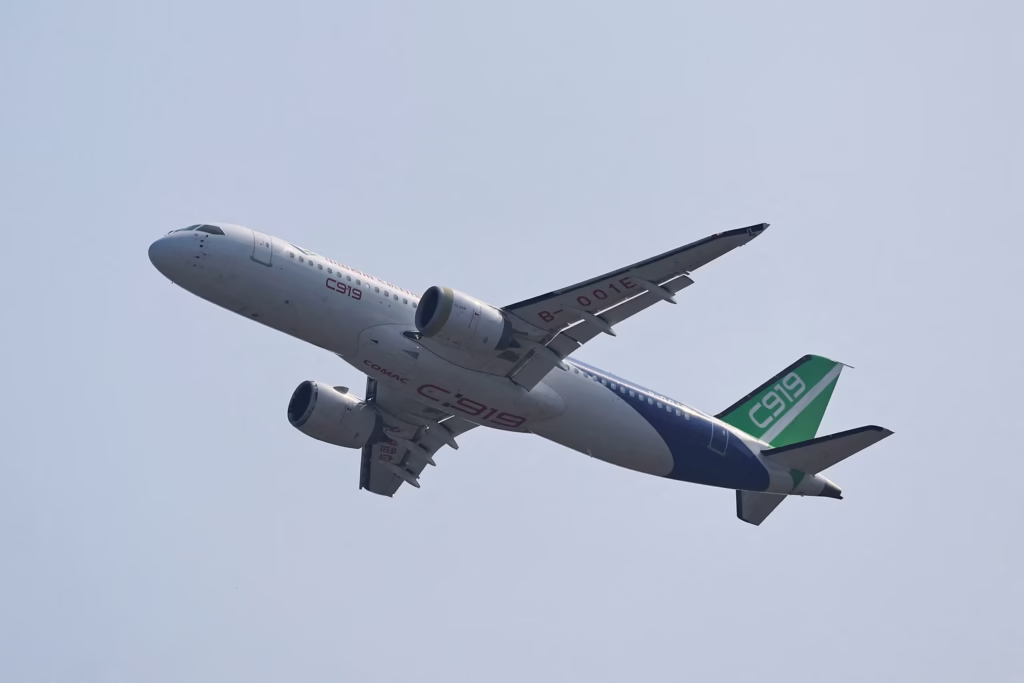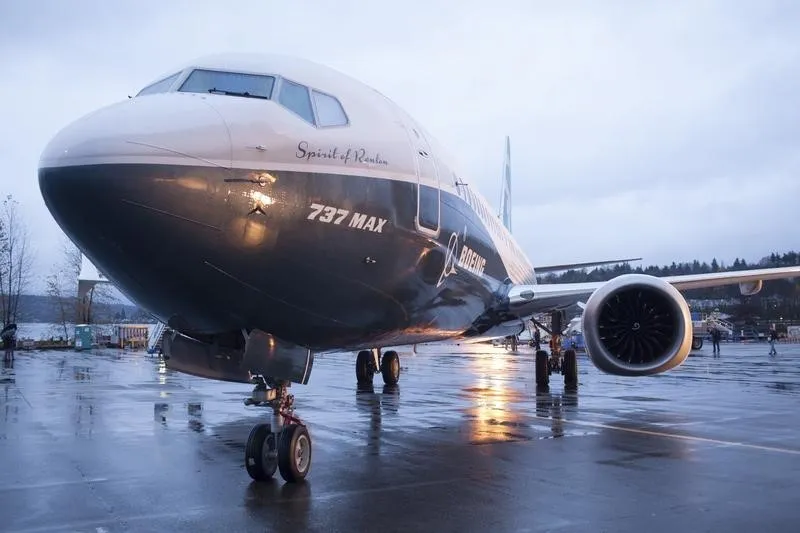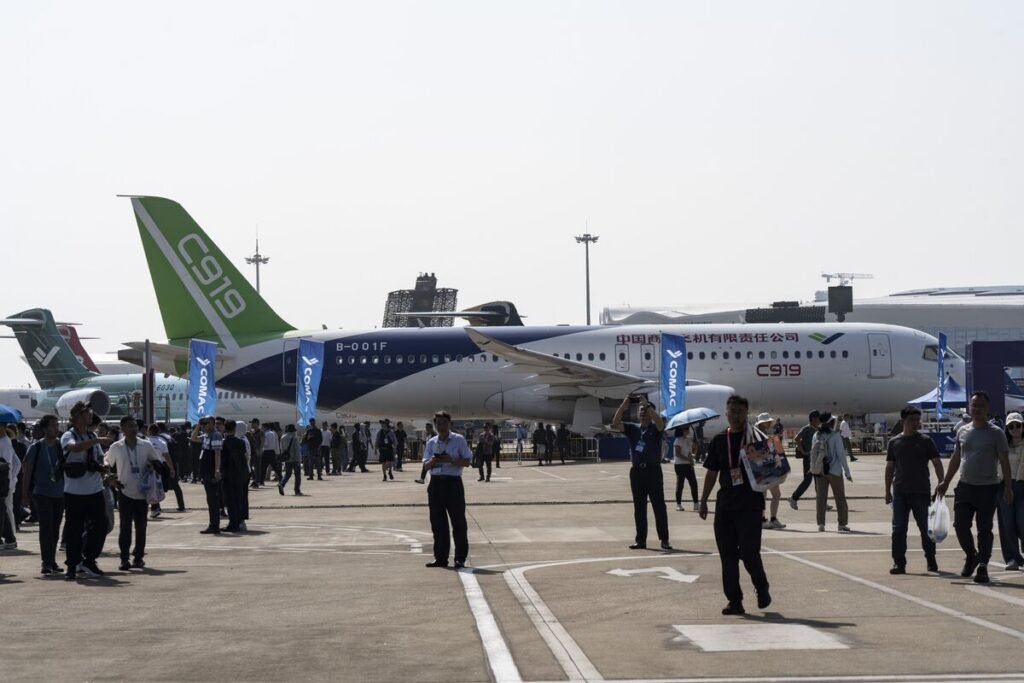Nigeria is positioning itself to become one of the first African countries to officially certify China’s new C919 aircraft for commercial use. The plan, announced by Capt. Chris Ona Najomo, Director General of the Nigerian Civil Aviation Authority (NCAA), signals a strategic shift in the country’s aviation sector and a possible break from the industry’s heavy reliance on Western aircraft manufacturers.
The decision comes at a time when Nigerian airlines are under growing pressure to expand fleets, cut operational costs, and offer more affordable ticket prices to passengers. If approved, the C919 could offer a fresh alternative to the Airbus and Boeing duopoly that has long dominated the Nigerian skies.
Table of Contents

Certification and Nigeria’s Aviation Ambition
At the heart of this move lies the issue of certification. Before any foreign aircraft can operate commercially in Nigeria, it must undergo a rigorous evaluation process by the NCAA. This includes technical assessments, inspections, and checks to ensure compliance with safety and operational standards.
According to Reuters, the C919, developed by China’s state-owned Commercial Aircraft Corporation of China (COMAC), is designed to rival the Boeing 737 and Airbus A320 families — the workhorses of short-to-medium haul aviation worldwide. Yet, despite its potential, the jet faces a significant challenge: it has not yet been validated by major Western regulators such as the US Federal Aviation Administration (FAA) or the European Union Aviation Safety Agency (EASA).
This absence has limited the aircraft’s global acceptance. However, Nigeria appears willing to take its own independent path. According to Najomo, the certification process in Nigeria will take months, but it has already started. If successful, it could give Nigerian airlines access to a new category of aircraft at a time when global leasing markets are tightening and Western jets are increasingly costly.
Industry observers say this could be a bold statement of ambition by Nigeria — positioning itself not only as a customer for Chinese aviation technology but also as a potential test case for how the C919 might gain traction in Africa.

Leasing Options, Training, and Airline Interest
For Nigeria’s airlines, the deal is about more than just new jets. COMAC has reportedly offered a package that includes maintenance facilities, crew training, and technical support — elements that are often decisive in persuading carriers to adopt new aircraft types.
One particularly attractive option is the proposal for dry leases, which allow airlines to lease aircraft without crew or other support. This flexibility could appeal to carriers with limited resources but ambitions to expand routes quickly.
Abdullahi Ahmed, Chief Executive of NG Eagle airline, is one of the industry figures watching developments closely. His airline currently operates a modest fleet of three aircraft, but he has expressed interest in expanding. He said that if the C919 is certified and maintenance support is guaranteed, he would consider adding it to his airline’s fleet.
Nigeria’s improved performance under the Aviation Working Group (AWG) rating, which measures compliance with international leasing and financing standards, also makes the country more attractive for such deals. By adhering to the Cape Town Convention, Nigeria has given global lessors and financiers greater confidence that aircraft investments are protected. This has opened doors for more Nigerian airlines to access planes through leasing rather than outright purchase, which is often prohibitively expensive.
Challenges Facing COMAC and Nigeria
Yet, the road ahead is not without challenges. For COMAC, the C919 project has faced repeated delays in production and delivery. The company has struggled to keep up with its own ambitious targets. Added to this, the United States recently halted the export of CFM engines used in the C919, citing trade and political tensions. Such disruptions could slow down the plane’s rollout and availability.
From Nigeria’s perspective, certifying an aircraft that lacks validation from the FAA or EASA presents both technical and reputational risks. Insurers and financiers often require such endorsements before offering favourable terms. Without them, Nigerian carriers might face higher insurance premiums or limited leasing opportunities.
Still, there are compelling reasons for Nigeria to push forward. Domestic airfares, though still expensive for many Nigerians, have seen an encouraging decline. Between 2011 and 2023, the average real fare fell by 43.6%, according to the International Air Transport Association (IATA). Adding a new competitor to the aircraft supply market could accelerate this trend, especially if Nigerian carriers are able to negotiate better leasing rates.
Some analysts also argue that Nigeria’s engagement with COMAC reflects a broader geopolitical trend — one where African countries diversify their partnerships beyond traditional Western suppliers. By embracing the C919, Nigeria could strengthen ties with China while signalling to Airbus and Boeing that alternatives now exist.

What Comes Next for Nigerian Aviation
The certification process for the C919 in Nigeria will not happen overnight. The NCAA must complete a long checklist of safety, operational, and technical requirements before giving approval. Experts say this could take anywhere from several months to more than a year, depending on the pace of testing and negotiations.
In the meantime, Nigerian airlines will continue operating their current fleets of mostly Boeing and Airbus aircraft, but many are watching closely for signs of progress. For passengers, the long-term hope is that certification of the C919 could lead to cheaper flights, more routes, and improved competition in the domestic market.
For policymakers, the project could help demonstrate Nigeria’s ability to make independent regulatory decisions and shape its aviation future without relying solely on Western validation. If successful, it may even pave the way for other African countries to follow Nigeria’s lead in considering COMAC’s aircraft.
The story of the C919 in Nigeria is, therefore, more than just about a plane. It is about ambition, diversification, and the struggle to make air travel more affordable and accessible for ordinary Nigerians. Whether the certification succeeds or stalls will depend on how Nigeria balances technical caution with strategic boldness in the months ahead.
Join Our Social Media Channels:
WhatsApp: NaijaEyes
Facebook: NaijaEyes
Twitter: NaijaEyes
Instagram: NaijaEyes
TikTok: NaijaEyes





